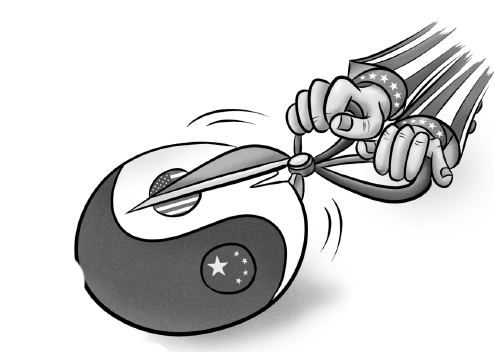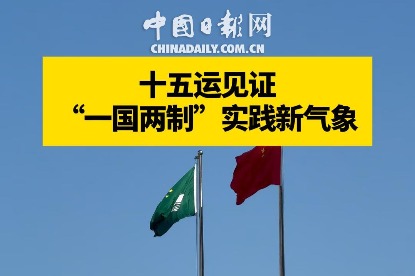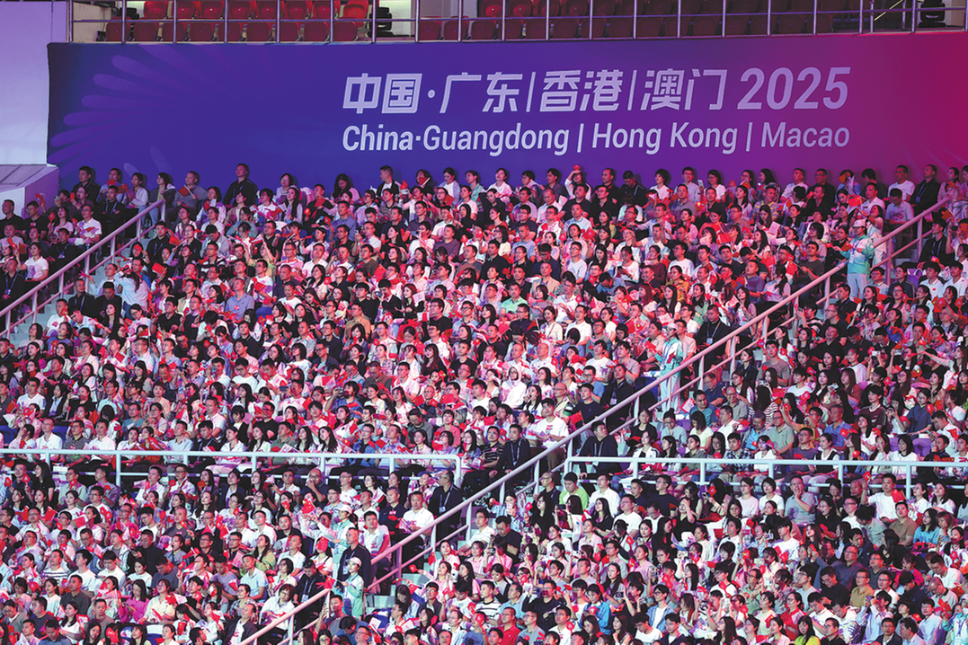Build trust instead of fanning hatred

Sino-US relations have been in free fall under the Donald Trump administration. In its latest provocative move, the US State Department on Tuesday asked the Chinese consulate in Houston, Texas, to close and the diplomats to leave the United States within 72 hours. Three days after that, China ordered the closure of the US consulate in Chengdu. The latest developments mark a historic low in bilateral relations since the two countries established diplomatic ties in 1979.
I clearly remember that time in 1979. In fact, I was among the earliest wave of American students coming to China to learn Chinese after the establishment of diplomatic ties. When I arrived at Nankai University in Tianjin in 1981, everything was new to me. The way of life. The education atmosphere. The roads. The buildings. The cuisine.
China was a land of scarcity then. There were quotas for everything from rice and other staples to bicycles. We had so much to learn, like how to drink boiled water, or how to find our way back to the university after getting lost in Tianjin, speaking American-accented broken Chinese.
Building ties with a sense of mission
We just wanted to learn. All of us as a class had a sense of mission, knowing that we were among the pioneers and that whatever profession we would be in-business, research, teaching or diplomacy-we would be involved with China. And everything we were learning would be put to use to build a fruitful relationship between China and the US.
Between us Americans and our Chinese classmates, there was this euphoric feeling trying to learn from each other at every moment. We were introduced to jiaozi and baozi and other types of dumplings. We learned to drink beer out of rice bowls. We invited our Chinese classmates to dance at parties, something so new and risqué at the time, even though we were only dancing and eating watermelon on hot summer Saturday nights; and exchanged lessons in Tianjin and New York slang with our classmates. It was so innocent, yet so real.
I remember the Nankai University basketball team challenged us foreign students to a game around this time of the year 39 years ago. Just because we were Americans, they assumed we would be really good at basketball. In reality, none of us could play outside of a backyard garage door game, and they smeared us in the first part of the game. Then the university team began to deliberately slow the game down to let us score points so that we wouldn't lose face. In the end they won, but the game brought us closer.
Wanted to make world a better place
That was the spirit of the time. We just wanted to make the world a better place and everyone of us believed that, by building understanding between our two countries and cultures, we could somehow contribute to that process.
My parents had come out of World War II. My father had fought on the Pacific front, island to island. None of us wanted to go back to those times. The Cold War was still very real. But everyone of the American exchange students and our Chinese classmates believed we-through the work of our generation-could be the catalysts to peace and friendship.
By the mid-to-late 1980s, I was commuting between Beijing and Hong Kong, first as a young law intern, then as a young attorney. It was an incredible time. Experimental free markets were burgeoning across China. There was something called the "self-responsibility system". Young artists were experimenting with ideas in a way that was once inconceivable.
The first Chinese rock bands emerged. The biggest McDonald's in the world opened at the corner of Wangfujing Street across from the Beijing Hotel. It just seemed that everything was changing everywhere and somehow barriers of the past were coming down.
During the 1990s, things changed faster. China had embarked on an unprecedented, previously unthinkable, reform in fields such as enterprises, finance, insurance and housing. Foreign investment was pouring into China. The old Beijing Hotel was like a shadow of the past. China World Hotel and the fancy Oriental Plaza were the new focus. It seemed like every company in the world was coming to China to do business. It was the "roaring '90s", full of optimism, opportunity and hope.
Hopes high for a brighter future
When China joined the World Trade Organization in 2001-following fierce negotiations during the Bill Clinton administration-and Beijing won the bid to host the 2008 Olympic Games, it seemed China was entering the big club. As the World Economic Forum annual meeting convened in the glitzy five-star hotels of Beijing, we all felt the present was integrating into what we thought would be a transparent, multilateral globalized world.
Today, in the summer of 2020, all of that seems to have disintegrated. China's consulate in Houston was the very first one to open after the establishment of Sino-US diplomatic ties. Ironically, it is the first to go. Therefore, its impact is much more than symbolic.
The two sides are possibly in the worst phase of diplomatic relations. I wish I could sit together again with my classmates at Nankai University. I don't think any of my classmates who were with me 39 years ago studying Chinese under mosquito nets on a hot July night with only the monotonously whirring electric fans to cool our dorm would believe that this is happening or want to see China and the US slide into a new cold war.
We need such minds, not the bellicose ideologues running policy in Washington today, to re-build China-US relations so we would spend less money on weapons and more on healthcare and the environment.
World of opportunity and hope still possible
If only that spirit of the past that we exchange students shared with our Chinese classmates could be brought back, China and the US could work more closely on advanced technologies, space exploration, food production, green energy, global monetary policy, environmental protection, and perhaps a globalized healthcare system. These are all huge business opportunities where technology can be used positively rather than in fanning hatred and anger, which is the current Facebook, Twitter conundrum.
About four decades ago, when we young idealistic foreign exchange students came to China to study, there was no mobile phone or internet, let alone social media. But we all shared a dream: that by helping build relations between China and the US, we could actually create a world of hope and opportunity, a better world, and pass it on to our children.
Some of us have not forgotten that dream.
The author is founding director of the Himalayan Consensus Institute and a research fellow at the Center for China and Globalization. The views don't necessarily represent those of China Daily.

Today's Top News
- China warns Japan against interference
- Nation's euro bond sale shows investors' confidence
- No soft landing for Tokyo's hard line
- Commerce minister urges US to increase areas of cooperation
- Strong demand for China's sovereign bonds signals global confidence
- Ministry urges Japan to 'maintain self-respect'






























